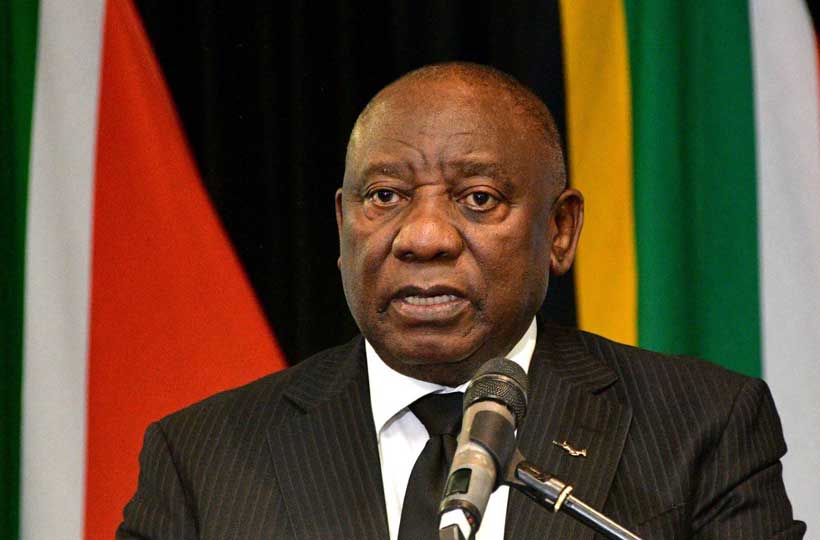South Africa’s Coalition Government: A Test of Racial Unity Amid Historic Tensions
Johannesburg, South Africa – In a nation where the stark legacy of apartheid looms over its socio-political landscape, South Africa’s new coalition government has brought together President Cyril Ramaphosa, a Black leader from the African National Congress (ANC), and John Steenhuisen, the white opposition leader from the Democratic Alliance (DA). This amalgamation paints a compelling image of unity in a country once marred by rigid racial segregation.
However, the power-sharing agreement, formalized a week ago, has resuscitated old racial tensions. Under this coalition, South Africa faces the prospect of seeing more white individuals in senior governmental roles than at any point since apartheid’s demise in 1994. While approximately 7% of South Africa’s 62 million population is white, the lingering scars of a brutal apartheid system remain palpable among the Black majority, who continue to grapple with poverty and inequality.
The ANC, which spearheaded South Africa’s liberation from apartheid under the historic leadership of Nelson Mandela, has witnessed a decline in its once-dominant political standing. The landmark election on May 29 forced the ANC to form a coalition government, marking the end of its three-decade dominance. The DA, with roots in liberal white opposition to apartheid, secured the second largest share of votes, challenging the ANC’s long-held stronghold.
Both parties have promoted their coalition as a crucial step toward unity in addressing the nation’s myriad socioeconomic issues. Yet, history’s shadow lingers. Just days after taking his oath in Parliament, DA lawmaker Renaldo Gouws faced suspension over a decade-old social media video using racially offensive slurs, now classified as hate speech. The incident has prompted the South African Human Rights Commission to pursue legal action against Gouws.
The DA, battling past allegations of racial bias, now faces renewed scrutiny. The Congress of South African Trade Unions (COSATU), a crucial ally of the ANC, criticized the DA, claiming it remains lenient on issues of racism. COSATU insists the DA must confront and rectify these perceptions if it seeks acceptance as a genuine partner in national unity.
Steenhuisen, in a televised interview, rejected claims that his party caters exclusively to white interests, emphasizing the DA’s second-place finish in a predominantly Black nation as evidence of broader support. Despite the DA’s diverse representation, its last Black leader’s departure in 2019 cast doubts on the party’s commitment to Black South Africans.
Adding to the coalition government’s challenges, former President Jacob Zuma’s political faction has employed incendiary rhetoric, labeling Ramaphosa a "house negro" and DA chair Helen Zille his "slave master." This language, evocative of historical racial tensions, underscores the deep-seated divides that persist.
The Economic Freedom Fighters (EFF) and Zuma’s MK Party have both renounced participation in what the ANC describes as a ‘government of national unity.’ EFF leader Julius Malema has vociferously criticized the coalition, asserting it fortifies white economic dominance. In a climate where 64% of Black South Africans live in poverty compared to just 1% of whites, according to a 2021 report by the South African Human Rights Commission, Malema’s denunciation of “white privilege” resonates with many frustrated by enduring inequalities.
Ramaphosa, in his inaugural address, acknowledged the persistent societal rifts, echoing Mandela’s call for racial reconciliation. “Our society remains deeply unequal and highly polarized,” he said, underscoring the ANC’s intent to utilize the coalition as a conduit for reviving Mandela’s vision.
“The color of the cat does not matter,” remarked ANC Secretary-General Fikile Mbalula, quoting Mandela’s inclusivity. “The fundamental question is how do we move the country forward.”
The unfolding political dynamics between the ANC and DA could mark a transformative period for South Africa. Balancing the aspirations of racial unity with the enduring historical grievances will indubitably test the resilience and vision of the coalition.
The above narrative reflects the evolving political landscape in South Africa as of a 2023 report.
Source: Adapted from a diverse range of South African historical and contemporary political contexts.
(Note: Sections of script tags related to Facebook tracking and SDK were excluded from the rewrite as they do not contribute to news content.)
